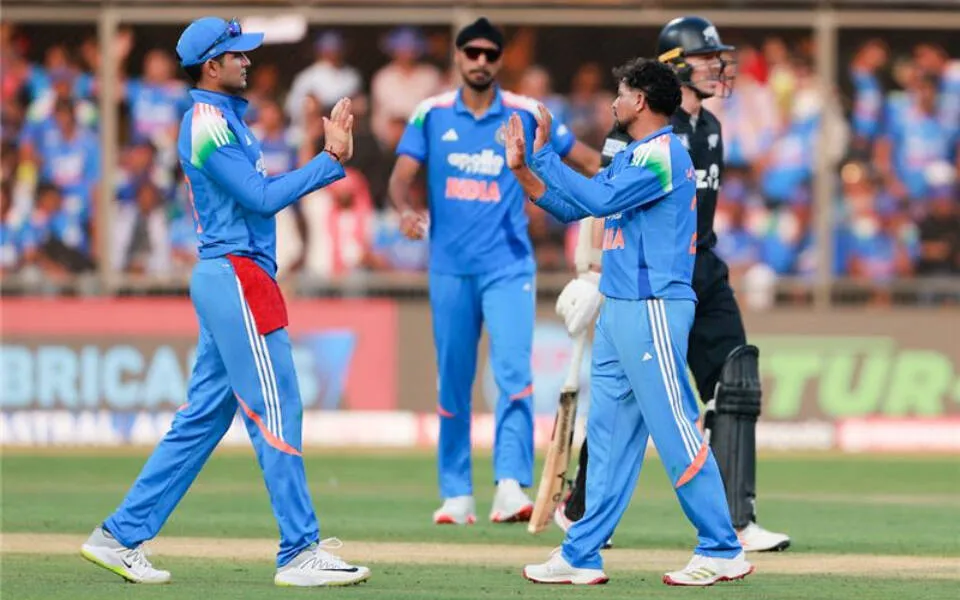On the fourth day of the second Test match between India and England in Rajkot, the Indians are leading the latter team with a formidable target of 557 runs in the fourth inning. Yashasvi Jaiswal, Shubman Gill, and Sarfaraz Khan were the standout batsmen for the Rohit Sharma-led team, as they led England by 322 runs at the beginning of the day and took the lead far above 550.
After Sarfaraz and Jaiswal reached their individual milestones during India’s second innings, everyone was waiting for skipper Rohit Sharma to declare. In the second session, with India ahead by 536 runs, the pair even started to make their way towards the changing room following the drinks break. But in a comical move, skipper Rohit Sharma told them that we hadn’t declared yet, sending them back to bat.
He even made a hand gesture, indicating that they were heading toward the changing area. Ben Duckett and Zak Crawley, the opening batsmen for England, had even run up to the change room to prepare to bat after sensing India’s declaration.
However, they were forced to return to the field when Rohit Sharma ordered Jaiswal and Sarfaraz to continue batting.
After scoring 430 runs and leading by 556 runs, India eventually called an over. With 14 fours and 12 sixes to his credit, Jaiswal amassed his second successive double-hundred in as many Tests and remained undefeated at 214* (236). Along with former Pakistan captain Wasim Akram, who accomplished the feat in 1996, his 12 maximums also share the record for the most sixes in a Test inning.
The record for most sixes in a Test innings held by Wasim Akram was equaled by Yashasvi Jaiswal.
Three of his twelve maximums, all in different places on the ground, came off consecutive deliveries against James Anderson. With the assistance of six fours and three sixes, newcomer Sarfaraz Khan scored 68* (72) to record his second consecutive half-century in the format, in addition to Jaiswal.
Shubman Gill was run out on 91 (151) in the first session of the series, thereby missing out on his second consecutive century earlier in the day.




![[WATCH] IND vs NZ 2026: Virat Kohli gifts signed jersey to Daryl Mitchell after third ODI 5 [WATCH] IND vs NZ 2026: Virat Kohli gifts signed jersey to Daryl Mitchell after third ODI](https://cricketmood.com/wp-content/uploads/2026/01/Kohli-Mitchell.jpg)

